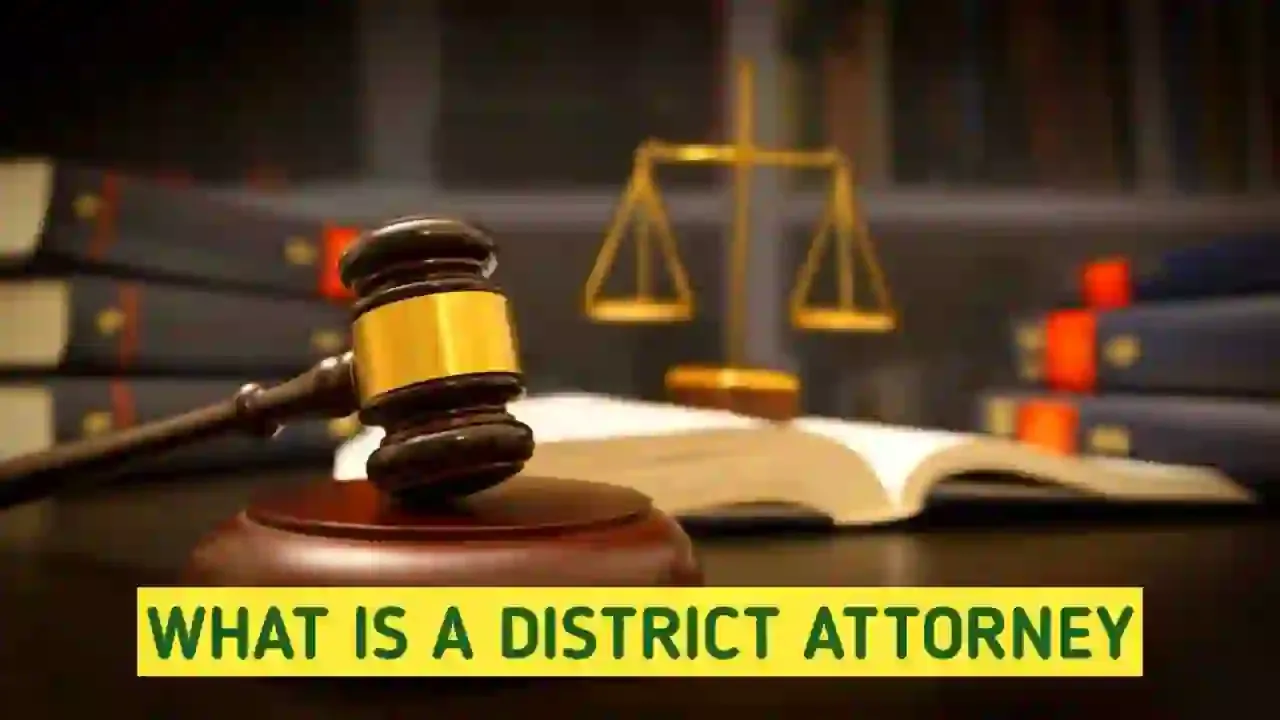What Is a District Attorney
In the realm of criminal justice, the role of a district attorney is of paramount importance. District attorneys play a vital role in upholding justice, prosecuting criminals, and ensuring public safety.
In this comprehensive guide, we will delve into what a district attorney is, their responsibilities, their role in the legal system, and the qualifications required to serve as a district attorney.
Understanding the District Attorney's Role
To comprehend the significance of a district attorney, it is crucial to understand their primary role and responsibilities. This section will define the role of a district attorney, highlighting their position as the chief prosecutor representing the government in criminal cases. It will also explore their duty to uphold the law, seek justice, and protect the interests of the community.
District Attorney vs. Prosecutor: What's the Difference?
While the terms "district attorney" and "prosecutor" are often used interchangeably, they have distinct differences. This section will clarify the disparity between a district attorney and a prosecutor, explaining the hierarchical structure and varying jurisdictional roles within the legal system.
Read more: How Does a Mortgage Work
The Importance of District Attorneys in the Legal System
District attorneys hold significant power and responsibility within the legal system. This section will outline the pivotal role they play in maintaining law and order, prosecuting offenders, protecting victims' rights, and ensuring fair trials. It will also explore how district attorneys collaborate with law enforcement agencies and other legal professionals.
Qualifications and Education for District Attorneys
Becoming a district attorney requires specific qualifications and education. This section will detail the educational path typically pursued, including obtaining a Juris Doctor (J.D.) degree, passing the bar exam, and gaining legal experience.
It will also highlight the importance of strong communication skills, courtroom experience, and leadership abilities.
Read more: What Is a Second Mortgage
District Attorney Elections and Appointments
District attorneys are either elected or appointed, depending on the jurisdiction. This section will explain the electoral process for district attorneys, including campaigning, fundraising, and public voting. It will also explore the appointment process in cases where district attorneys are not elected.
District Attorney's Office Structure
The structure of a district attorney's office can vary depending on the jurisdiction and caseload. This section will provide an overview of the typical organizational structure within a district attorney's office, including roles such as assistant district attorneys, investigators, and support staff. It will also discuss the importance of teamwork and collaboration.
Read more: What Is Mortgage Insurance
District Attorney's Role in Criminal Cases
District attorneys are central figures in criminal cases, representing the state or government. This section will explore their involvement in various stages of a criminal case, from investigation and charging decisions to plea negotiations and courtroom trials. It will also touch upon the district attorney's responsibility to ensure a fair and impartial trial.
Read more: What is a HELOC Loan
Balancing Justice and Public Interest
District attorneys face the challenging task of balancing justice, the public interest, and the rights of the accused. This section will discuss the ethical considerations and decision-making processes district attorneys must navigate when determining charges, seeking plea bargains, and pursuing convictions. It will also shed light on their role in advocating for criminal justice reform.
District Attorneys and Community Engagement
District attorneys have a unique opportunity to engage with the community they serve. This section will highlight the importance of community outreach programs, initiatives to build trust, and partnerships with local organizations.
It will also discuss the role of district attorneys in addressing community concerns and implementing restorative justice practices.
Read more: How to Get a Loan with Bad Credit
The Evolution of District Attorneys' Roles
Over time, the role of district attorneys has evolved to adapt to societal changes and legal reforms. This section will provide insights into the evolving responsibilities of district attorneys, including the increased focus on diversion programs, alternatives to incarceration, and addressing systemic issues within the criminal justice system.
District Attorneys and Victim Advocacy
Protecting the rights and interests of victims is a fundamental aspect of a district attorney's role. This section will explore the advocacy efforts undertaken by district attorneys to support and empower crime victims. It will also discuss the resources and services available to victims through district attorney offices.
Read more: How to Get a Business Loan
Challenges Faced by District Attorneys
District attorneys encounter various challenges in their pursuit of justice. This section will examine some of the common obstacles district attorneys face, such as caseload management, limited resources, public scrutiny, and maintaining a fair and impartial approach to their work.
Read more: Why is Car Insurance So Expensive
Conclusion
District attorneys play a crucial role in the criminal justice system, ensuring the fair and effective prosecution of crimes. By understanding the responsibilities, qualifications, and challenges faced by district attorneys, we gain insight into their vital contribution to upholding the law and protecting our communities.
Whether elected or appointed, district attorneys strive to seek justice, advocate for victims, and promote public safety. With the knowledge provided in this comprehensive guide, we can appreciate the significance of districtattorneys and their dedication to maintaining a just and equitable society.

